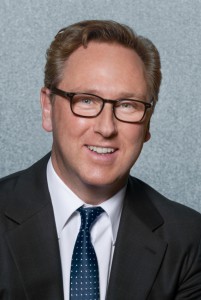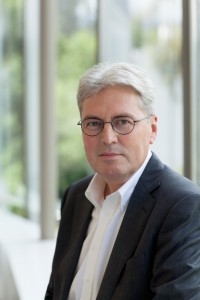Discussions on moral values and ethics have never been more important than today. The financial crisis has shown how dangerous the impact of a lack of values and ethical responsibility on our entire economic and social structures can be. When investigating the causes of erroneous trends or rather the possibilities of avoiding such, one inevitably will stumble upon the question of what view of mankind one holds.
As a Christian, the testimony of the bible is authoritative to me: mankind is God’s creature. This provides it with a unique dignity. God creates a human being in relation to its fellow men. This idea is expressed in the commandment of neighbourly love: “Thou shalt love thy neighbour as thyself”. Therefore, a human being can never exclusively be means to an end in business – e.g., for the purpose of profit maximisation – but rather has to be an end in itself at all times.
The bible reminds us to handle property and wealth responsibly. Jesus constantly warns that property may turn into the false god “Mammon” for mankind, setting its heart on the idol and serving it instead of God.
Based on these ideas, we have developed an overall concept for our business. Initially, it was orally passed on, by now it has been written down. It defines as the greater goal of our company: “The business has to serve the people.” The determination of its position at the same time serves as a preamble: “The Deichmann family feels committed to the Christian view of mankind. It is eager to emphasise these values in its operational activities – being well aware that reality will lack behind the desired ideal at times.”
It is further said: “On basis of these values we have defined a greater goal for our company: The business has to serve the people. This statement is valid for customers, employees, suppliers as well as people in need alike.
“In this context, achieving profits is not an end in itself. Profits are necessary to keep the business healthy, protect and create new jobs, to achieve expansion through internal means as well as exercise charitable functions.”
What does that mean to the individual groups mentioned above?
The consumers are our first priority: “We want to offer fashionable shoes in high quality to large sections of society at a fair price. We perceive this aim not only as one of sensible business but as a social endeavour.”
The company, however, wants to serve its employees as well: “Our managing staff shall leave the necessary room for proactive initiatives of employees, further one’s own responsibility and the pride of achievement as well as take every employee’s abilities, needs and woes seriously. This should be achieved in the spirit of cooperation and empathy rather than the spirit of confrontation.”
In addition, for many years now we pay salaries exceeding the pay scale of collective bargaining to our employees and support them in their efforts to establish a pension fund beyond the legal requirements. We abstain from establishing minor employment forms because we want to collaborate especially with our female staff on retirement provisions. Beyond those measures, we offer our employees the possibility of a so-called Week of Health at a Swiss sanatorium for a long time. For employees facing financial trouble, we have established a supportive fund that offers non-bureaucratic help especially in cases of illness and deaths in the family. Regular allocations are also offered in cases of births and marriages. The funds are in all cases provided by the company.
We also feel responsible for the employees of our business partners. As a globally active company, we are aware of potential abberations on our supply markets. Our guidelines address this issue:
“We attach importance to a fair and collegial commerce with our business partners. We pay attention and try to enforce that the people in the countries of our production sites can work in humane conditions. In this respect, Deichmann feels committed to its Code of Conduct.”
Our long-standing Code of Conduct is based on the requirements of the International Labour Organization. It entails social and ecological minimum standards that we enforce towards our suppliers. This is regularly monitored by independent testing institutes.
As a third group of people, we as an entrepreneurial family feel obligated to support people in need, both at home and abroad. Help for the poorest among the poor has a long-standing tradition at Deichmann that dates back to its founding years. Today, the company supports more than 200.000 people through its relief organisation “wortundtat” and local partner organisations in India, Tanzania, Moldavia, Greece and Germany. The focus in these projects is aimed at medical assistance, and especially the educational sector. Most projects focus on helping people help themselves. The on-site support is exclusively provided by local staff.
Many of our employees identify themselves with our business culture and the associated social and charitable commitment. They feel connected to the company in an exceptional manner and help to fill our overall concept with life again and again.
About the author:
 Heinrich Deichmann is a German entrepreneur and member of the Board of Patrons of the “My Europe” Initiative. Since 1999 he is the CEO of the Deichmann Group, Europe’s largest shoe retailer. more…
Heinrich Deichmann is a German entrepreneur and member of the Board of Patrons of the “My Europe” Initiative. Since 1999 he is the CEO of the Deichmann Group, Europe’s largest shoe retailer. more…


 lessandra
lessandra